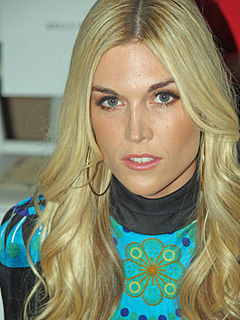A Quote by Boethius
A person is an individual substance of a rational nature.
Quote Topics
Related Quotes
Our reverence for the nobility of manhood will not be lessened by the knowledge that man is in substance and in structure, one with the brutes; for he alone possesses the marvellous endowment of intelligible and rational speech whereby he has slowly accumulated and organized the experience which is almost wholly lost with the cessation of individual life in other animals; so that he now stands raised above it as on a mountain-top, far above the level of his humble fellows, and transfigured from his grosser nature by reflecting, here and there, a ray from the infinite source of truth.
But if men would give heed to the nature of substance they would doubt less concerning the Proposition that Existence appertains to the nature of substance: rather they would reckon it an axiom above all others, and hold it among common opinions. For then by substance they would understand that which is in itself, and through itself is conceived, or rather that whose knowledge does not depend on the knowledge of any other thing.
Our nature is to worship, but unless that element is directed towards God it becomes "a senseless impersonal force, carrying us away in its momentum. It becomes a search for ecstasy - no matter what kind achieved through destruction...The worshipful integraton of nature in the person is inverted in a hellish imprisonment of the individual in nature."
Individualism regards man - every man - as an independent, sovereign entity who possesses an inalienable right to his own life, a right derived from his nature as a rational being. Individualism holds that a civilized society, or any form of association, cooperation or peaceful co-existence among men, can be achieved only on the basis of the recognition of individual rights - and that a group, as such, has no rights other than the individual rights of its members.
The basis of artistic creation is not what is, but what might be; not the real, but the possible. Artists create according to the same principles as nature, but they apply them to individual entities, while nature, to use a Goethean expression, thinks nothing of individual things. She is always building and destroying, because she wants to achieve perfection, not in the individual thing, but in the whole.
So far as discipline is concerned, freedom means not its absence but the use of higher and more rational forms as contrasted with those that are lower or less rational. A free discipline controls the individual by appealing to his reason and conscience, and therefore to his self-respect; while an unfree control works upon some lower phase of the mind, and so tends to degrade him. It is freedom to be disciplined in as rational a manner as you are fit for.
In the course of evolution nature has gone to endless trouble to see that every individual is unlike every other individual....Physically and mentally, each one of us is unique. Any culture which, in the interests of efficiency or in the name of some political or religious dogma, seeks to standardize the human individual, commits an outrage against man's biological nature.
Moreover, it is difficult to reconcile Hobbes’s distrust for the individual with his confidence in the altruistic nature of the individual or individuals who will oversee and control the Leviathan. Are not the latter also of flesh and blood? Hobbes seems to be saying that man’s nature cannot be trusted but the nature of a ruler or a ruling assembly of men can be trusted. How so?








































